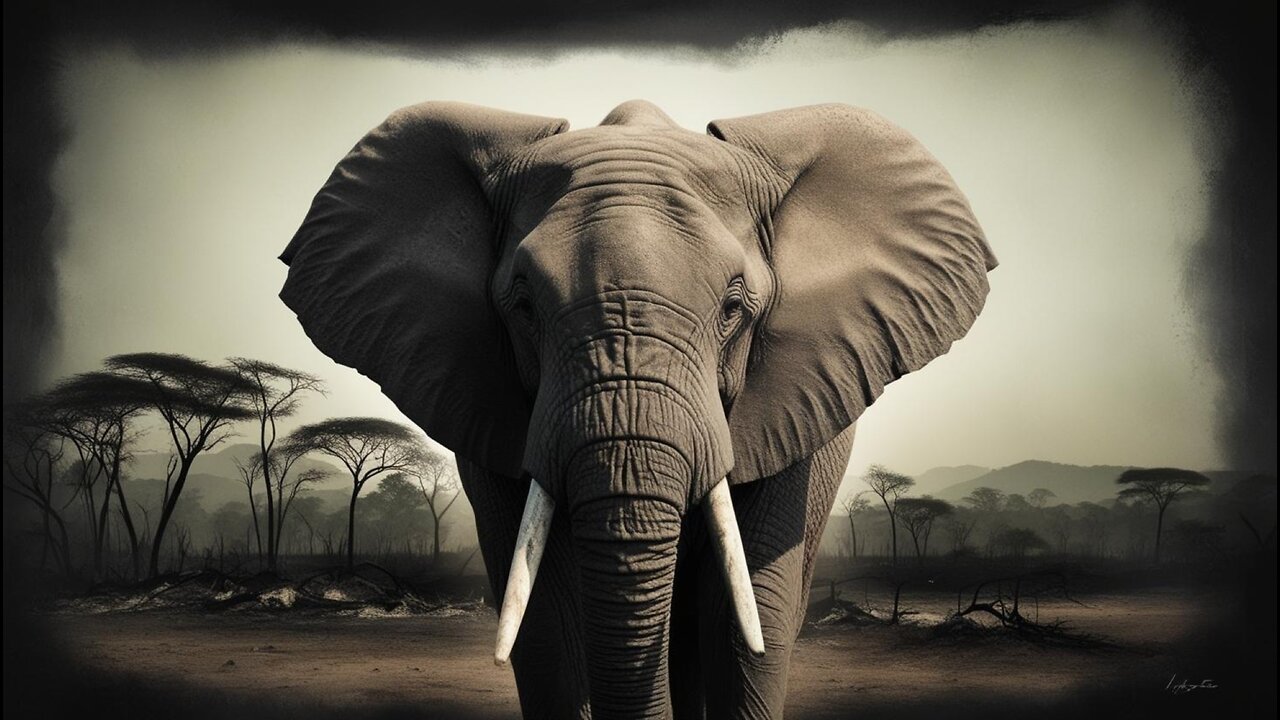Premium Only Content

Poaching in Africa and How You Can Help Stop It
For video production services contact [email protected] https://www.inspiredrisk.com/
Africa’s wilderness is home to some of the world’s most iconic creatures. The majestic elephant, the mighty rhinoceros, the elegant giraffe, the fierce lion, these animals have roamed the earth for millions of years. But for decades they have faced an unprecedented threat that continues to grow. A threat that is slowly pushing them to the brink of extinction.
What could cause the disappearance of these ancient beings? What drives the ruthless poachers who hunt them? It’s quite simple: their body parts, including teeth, hooves, claws, tails, ivory and rhino horn. These once-priceless materials are now at the center of a deadly and illegal trade that spans continents. The result is that countless wild animals have been murdered and their numbers are now critically depleted.
Ivory, once considered a symbol of wealth and status, has been coveted for centuries. In parts of Asia, particularly Vietnam and Hong Kong, ivory is used for carving intricate sculptures, jewelry, and even traditional medicine. But at what cost?
Every year, as many as 35,000 elephants are killed for their tusks. That’s one elephant every 15 minutes. And rhinos are the least safe of all. Rhino horn, composed of keratin, the same material found in human hair, is believed to have medicinal properties in some cultures. It’s falsely believed to treat hangovers, impotence, fever, and even cancer, despite no scientific evidence to support its effectiveness. The demand for rhino horn is exceedingly high on the black market, and is valued more than gold.
Behind these killings lies a dark and powerful network. Poaching is big business. The black market for ivory and rhino horn generates billions of dollars every year, fueling criminal organizations across the globe. These poachers are not just taking lives, they’re stealing the future of these species.
The ivory trade often starts in remote African villages where poachers kill elephants for their tusks. The ivory is smuggled through illegal channels, traveling through countries like Kenya, Tanzania, Mozambique, Singapore and even China, before reaching the markets of Vietnam and Hong Kong.
In Vietnam, rhino horn is prized as a supposed cure-all for ailments, despite the fact that it has no medicinal value. The demand here is so high, it's driven prices into the thousands of dollars. Rhino horn powder can sell there for as much as $75,000 per kilogram. Similarly, Hong Kong is a major hub for the ivory trade, despite its legal ban on the sale of ivory in 2021. As the World’s biggest buyer, in China, raw ivory retails for $2,100 per kilogram.
This illegal demand is causing irreversible damage. Elephant populations are shrinking rapidly, and rhinos are becoming extinct in the wild. The black market isn't just a trade in materials, it's a trade in death.
Both African elephants and rhinos are classified as endangered. Some species of rhinos, like the Western Black Rhino, have already been declared extinct in the wild. The African elephant population has dropped by over 60% in the past few decades. At this rate, we could lose them entirely.
While Habitat loss and fragmentation, human wildlife conflict, as well as climate change are also driving forces behind the declining numbers of these wild animals, poaching is a key contributor in the destruction of animal populations.
And as their numbers dwindle, so too does the rich biodiversity that depends on them. These magnificent creatures are not just animals, they’re keystones in their ecosystems, maintaining balance in the wild. Lose them, and the whole ecosystem crumbles.
We can still save them. Support conservation organizations. Groups like Save the Elephants, Akashinga, Baby Rhino Rescue, the African Wildlife Foundation, Care For Wild, Sheldrick Wildlife Trust, and the Elephant Crisis Fund are on the frontlines, working tirelessly to protect elephants, rhinos and countless other endangered animals. Your donations help fund vital efforts to stop poaching and protect habitats.
Opt for responsible tourism. When you travel, choose safari companies that prioritize conservation and avoid those that profit from exploiting wildlife. You can also get directly involved by volunteering at animal sanctuaries to help support these animals in a meaningful way. Use your voice. Advocate for stronger anti-poaching laws and policies that target the ivory and rhino horn trade. Speak up, share what you’ve learned, and join campaigns to raise awareness about the issue.
We can still protect these extraordinary creatures. We have the power to stop poaching, to end the demand for ivory and rhino horn, and to ensure that elephants, rhinos and countless other endangered species continue to roam the Earth for generations to come. The fight is far from over. But with your help, we can give these magnificent creatures a future. The time to act is now.
-
 LIVE
LIVE
Barry Cunningham
1 hour agoPRESIDENT TRUMP HOLDS MEETINGS AT THE UNITED NATIONS!
1,118 watching -
 LIVE
LIVE
StoneMountain64
16 minutes agoHitting Max lvl in Arena Breakout Infinite
132 watching -
 1:07:21
1:07:21
Timcast
1 hour agoTrump Declares Antifa TERRORISTS, The Ultimate Test For The U.S. And Threat Of Civil War
159K67 -
 3:45:31
3:45:31
MattMorseTV
4 hours ago $7.66 earned🔴Trump's United Nations BOMBSHELL.🔴
59.3K15 -
 LIVE
LIVE
Rebel News
1 hour agoRebels on the ground for ostrich cull, New hate crime bill, Ford on homeless crisis | Rebel Roundup
379 watching -
 4:23
4:23
Michael Heaver
9 hours agoItaly Suffers Extreme BLOCKADE
2.68K2 -
 1:59:09
1:59:09
Steven Crowder
4 hours agoWe're Done Apologizing: Trump Torches Indian H-1B Visas & The United Nations
381K297 -
 43:39
43:39
The Rubin Report
3 hours agoHost Goes Quiet as Press Sec Destroys Jimmy Kimmel Narrative w/ Facts in Under 1 Minute
41.3K18 -

Side Scrollers Podcast
3 hours agoKimmel RETURNS + Twitch University + More! | Side Scrollers
15.1K -

The Mel K Show
3 hours agoMORNINGS WITH MEL K Defining Liberty: Where the Constitution Stands in a Surveillance State 9-23-25
29.1K3